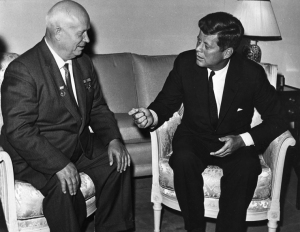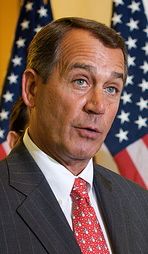I’m most of the way through Robert Caro’s “The Passage of Power,” the latest in his series of Lyndon Johnson biographies. And I’ve been struck by his description of John F. Kennedy’s governing style, and of the similarities to President Obama.
What they share is a daunting intelligence; level-headedness in moments of confusion and anxiety, which served them in good stead when high-stakes foreign-policy decisions had to be made quickly (the Cuban missile crisis, the raid on Osama bin Laden’s compound); and the ability to give a terrific speech, undermined to some degree by their aloof detachment.
The downside? Kennedy comes across as utterly clueless in working the levers of power with Congress, a failing he shares with Obama. Yes, it often appears that the Republicans are going to say no to Obama regardless of what he proposes. But Caro describes a coalition of Republicans and conservative southern Democrats in the early 1960s that was no less intractable than the Tea Party Republicans of today.
Kennedy, Caro writes, concluded that working with Congress was hopeless as he watched his tax-cut bill and civil-rights legislation go nowhere. But when Johnson became president, he engaged in a combination of cajoling, flattery and threats that he mastered in the 1950s as Senate majority leader. What Kennedy had seen as the pragmatic acceptance of reality turned out to be a rationalization of his own shortcomings.
Could Obama have gotten more than he has from Mitch McConnell, John Boehner and Eric Cantor? It seems unlikely. But given Bob Woodward’s description of the president’s hapless dealings with the Republican leadership, perhaps a leader more willing to engage with the opposition could have had better results.
Not to get carried away. It’s hard to imagine a better schmoozer in the White House than Bill Clinton. Yet his tax plan was approved without a single Republican vote — and on health care, Obama succeeded where Clinton failed. (I enjoyed Clinton’s speech last week as much as anyone, but his invocation of the 1990s as a time of bipartisan cooperation was pure fiction. I assume the Big Dog hasn’t forgotten that he was impeached for his personal behavior.)
Still, it’s interesting to think about how the past four years might have been different if Obama was a little less JFK and a little more LBJ.
Photo via Wikimedia Commons, from the U.S. Department of State in the John F. Kennedy Presidential Library and Museum, Boston.




